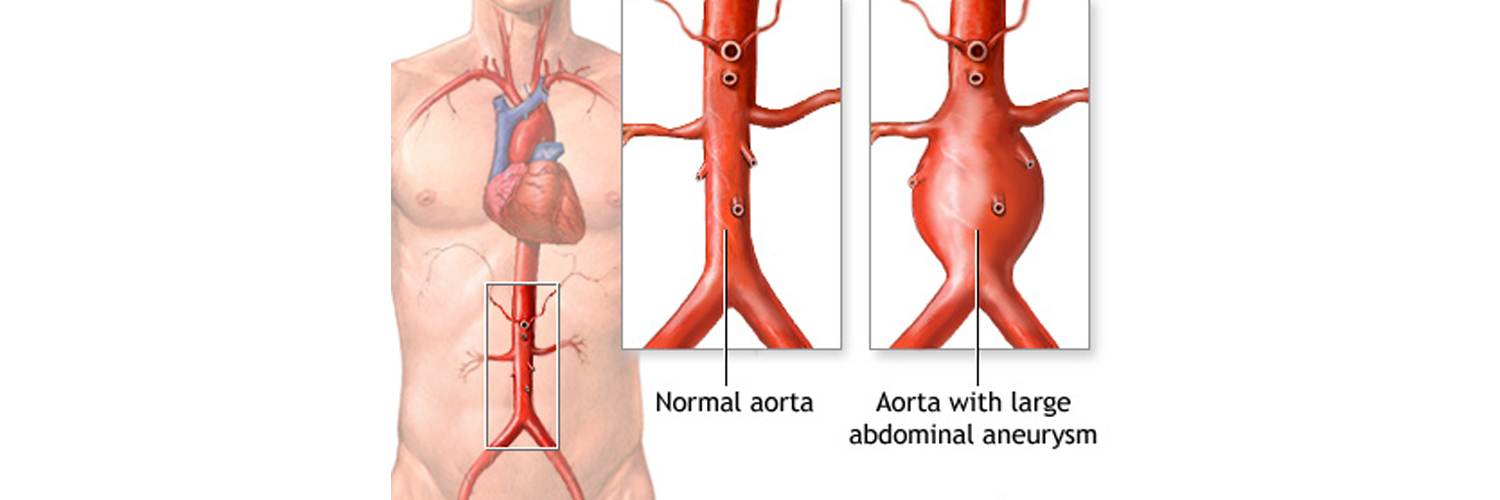
An aortic aneurysm is a condition where a weakening on the actual wall of the aorta causes an abnormal swelling or bulge to grow. The aorta is the major blood vessel that carries blood from your heart to the rest of your body. These bulges can occur anywhere along the aorta, swelling to different sizes and shapes, sometimes several times its normal size. There are two types of aortic aneurysms, abdominal and thoracic. The abdominal type occurs in the aorta that passes through the abdomen, whereas the thoracic occurs in the chest cavity. Interestingly, abdominal aneurysms are more common than thoracic aneurysms.
Abdominal aortic aneurysms often tend to grow slowly, and usually without any early symptoms, making them difficult to detect. As an aneurysm enlarges, people may notice a pulsating feeling near the navel, deep constant pain in the abdomen, or back pain. Signs that an aortic aneurysm has ruptured may be sudden intense abdominal pain, radiation of pain to the legs or back, dizziness, nausea, vomiting, low blood pressure, or a rapid pulse. Because the aorta is the body’s main supplier of blood, it can cause life-threatening internal bleeding if it ruptures; on top of that, emergency surgery for a ruptured aortic aneurysm can be rather risky. If you have any of these symptoms, you must not ignore them!
Like all vascular diseases, the causes of aortic aneurysms increase with age and depend on overall health. The exact cause of aortic aneurysms is unknown, but multiple risk factors include: tobacco use, high blood pressure, physical trauma, and in some cases it is hereditary. All of these cause damage to the aorta walls, making them weaker and more susceptible to an aneurysm.
Another complication of aortic aneurysms is the risk of blood clots. Small blood clots can develop within an aortic aneurysm. If a blood clot breaks loose from the inside wall of an aneurysm and blocks a blood vessel elsewhere in your body, it can cause pain or block the blood flow altogether to the legs, toes, kidneys or abdominal organs.
Don’t avoid what your body tells you; it is better to be safe than sorry in the long run! Make an appointment with the professionals at Vascular Surgery Associates; they are here to help prevent and treat vascular disease and complications.
